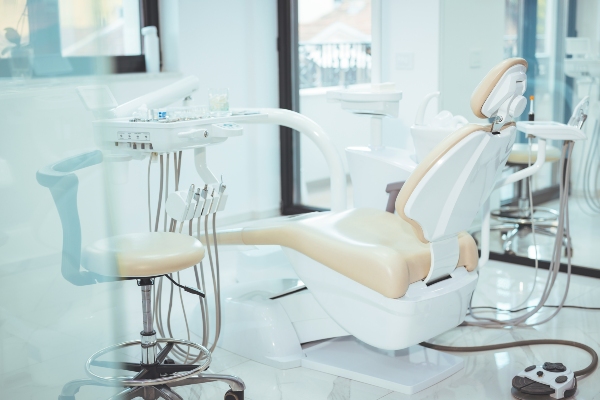TMJ Disorder Treatment From a Dentist

There are several methods that a dentist may recommend for treating temporomandibular joint (TMJ) disorder. The best treatment depends on the severity of the TMJ disorder, the specific symptoms that the patient experiences, how long the symptoms have lasted, and what remedies and treatment solutions have been tried in the past.
TMJ disorder: What are my treatment options?
The most common ways that TMJ disorder is treated include home exercises, mouthguards and stents, medication, and surgery. The following is a review of each type of TMJ disorder treatment.
Home exercises
Mild cases of TMJ may not require treatment from a dentist; in many cases, lifestyle modifications are enough to relieve the symptoms. Home remedies that a dentist may recommend include jaw exercises to improve range of motion, stress reduction exercises, changes in the person’s diet, and the use of heat and ice pads. Patients should be sure to speak with the dentist about home exercises and lifestyle modifications that have been made in the past.
Mouthguard for bruxism
Bruxism is a leading cause of TMJ disorder. Grinding the teeth at night places an extreme amount of pressure on the temporomandibular joint and surrounding jaw muscles. One way to relieve this pressure is by wearing a mouthguard for bruxism, which is customized by a dentist to fit comfortably and help prevent teeth clenching together at night. Orthodontic treatment may also be a way to correct the underlying cause of bruxism.
Medications
Medications can help relieve certain cases of TMJ disorder. For mild cases, anti-inflammatory medications that are bought over the counter can help. In other instances, the dentist may recommend muscle relaxants. If stress is found to be a cause of TMJ disorder, antidepressants prescribed by a mental health professional may also help.
Surgery
Surgery for TMJ disorder is used as a last resort if symptoms do not improve from non-surgical methods of treatment from a dentist. The goals of jaw surgery for TMJ disorder are to improve jaw positioning and repair any damage that may be contributing to symptoms. TMJ surgery is usually performed by an oral surgeon and often requires general anesthesia.
How to determine the right TMJ treatment solution for you
The recommended TMJ disorder treatment depends on the underlying cause of the symptoms and their severity. It is important to visit a dentist anytime that TMJ disorder continues for an extended period of time or suddenly worsens and becomes intolerable. A dentist can assess the most likely cause of TMJ disorder and provide a professional treatment recommendation.
Are you experiencing symptoms of TMJ disorder?
You can find relief for your TMJ disorder symptoms for the long term by visiting a dentist to discuss your symptoms, diagnose the cause, and consider all available treatment options. Here at our dental practice, we take pride in helping people who have TMJ disorder symptoms overcome their discomfort, tension, limited movement of the jaw, and other symptoms.
Request an appointment here: https://davisanddingle.com or call Davis & Dingle Family Dentistry at (803) 567-1804 for an appointment in our Columbia office.
Check out what others are saying about our dental services on Yelp: TMJ Dentist in Columbia, SC.
Recent Posts
A TMJ dentist specializes in diagnosing and treating disorders of the temporomandibular joint, which connects the jaw to the skull. TMJ disorders or TMJDs can lead to pain and difficulty with everyday activities such as chewing and speaking. Understanding the causes and symptoms of TMJDs can help individuals seek appropriate care.The temporomandibular joint (TMJ) plays…
Many individuals experience symptoms of TMJ, and Botox® is becoming a popular way to treat the illness. TMJ can be very painful and cause a lot of discomfort in your jawbone. It has been known to cause muscle aching and a clicking sound while moving the jaw, and in some cases, it will cause the…
TMJ can be very painful to live with, and many individuals are turning to Botox® to help treat the problem. Your jawbone has a muscle connected to it that acts as a hinge, and it is used to connect it to your skull. This allows your jaw to perform daily functions such as talking, chewing,…
Temporomandibular joint disorder or TMJ disorder refers to a condition that affects the muscles, ligaments, and joints surrounding the jaw. The TMJ is a ball and socket hinge that uses sliding and hinging motions to function. The joint is at the back of the jaw and includes a bony bump called the articular eminence. The…


